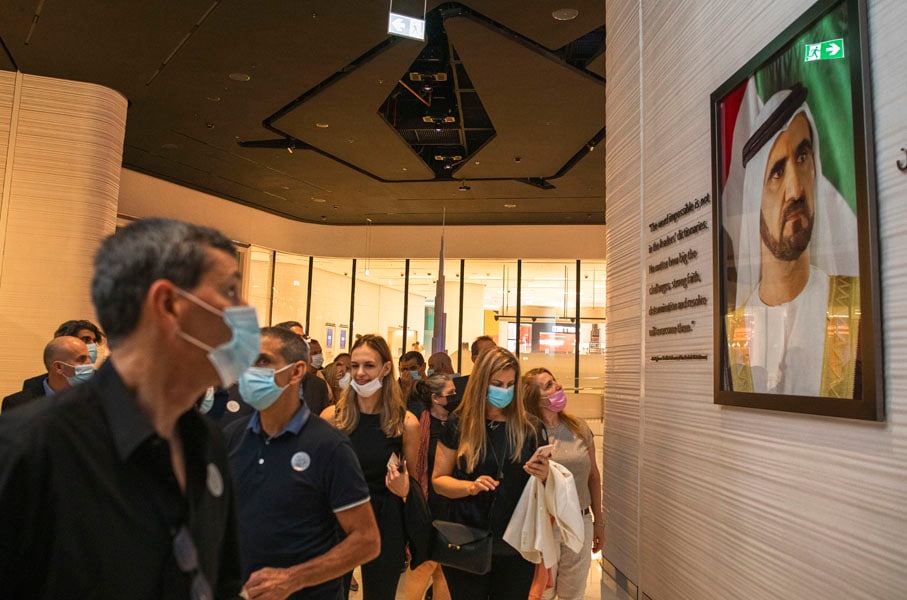UAE changes to work week in a nod to global business
Moving the weekend from Friday and Saturday to Saturday and Sunday shows, experts say, just how ready the UAE is to forgo tradition in order to attract foreign investment and talent


 An Israeli group of entrepreneurs passes by an image of Mohammed bin Rashid Al Maktoum in the Burj Khalifa, the world’s tallest building, in Dubai, United Arab Emirates, Oct. 27, 2020. The United Arab Emirates, a hub of international commerce, announced Tuesday, Dec. 7l, 2021 that it would shift its weekends to bring them more in line with the Western calendar and global markets, once again showing its willingness to part ways with its Arab neighbors. (Dan Balilty/The New York Times)
An Israeli group of entrepreneurs passes by an image of Mohammed bin Rashid Al Maktoum in the Burj Khalifa, the world’s tallest building, in Dubai, United Arab Emirates, Oct. 27, 2020. The United Arab Emirates, a hub of international commerce, announced Tuesday, Dec. 7l, 2021 that it would shift its weekends to bring them more in line with the Western calendar and global markets, once again showing its willingness to part ways with its Arab neighbors. (Dan Balilty/The New York Times)
CAIRO — The United Arab Emirates, a hub of international commerce, announced Tuesday that it would shift its weekends to bring them more in line with the Western calendar and global markets, once again showing its willingness to part ways with its Arab neighbors.
The government declared a 4-1/2 day workweek, moving the weekend from Friday and Saturday to Saturday and Sunday. It made Friday, the Muslim holy day, a half-day of work that ends at noon, just in time for the communal prayer that is normally held in mosques and customarily observed by Muslims.
Like Sunday for Christian communities in the West, Friday is customarily the day Muslims take off to worship and unite with family and friends, and in most Arab countries, the standard workweek is Sunday through Thursday. Changing that practice, experts say, shows just how ready the UAE is to forgo tradition in order to attract foreign investment and talent.
In a statement, the Emirati government said the new weekend, which will begin on Jan. 1, “enhances the integration of the national economy with the various economies and global markets and ensures the matching of the days of exchanges and commercial and financial transactions."
Private businesses can set their own workweeks, but the new schedule, which applies to government agencies, creates a new set of expectations.
The UAE, an oil-rich state on the Persian Gulf, has long been a commercial and tourism center, heavily dependent on a foreign work force that outnumbers its citizens. It attracts international workers with high wages and low taxes and a relatively safe and socially liberal atmosphere that circumvents religious traditions such as prohibitions on alcohol and conservative dress codes.
While the UAE has become more liberal socially, politics are a very different matter. The country is a federation of seven monarchies, where dissenting voices are rarely heard or tolerated.
First Published: Dec 08, 2021, 16:39
Subscribe Now